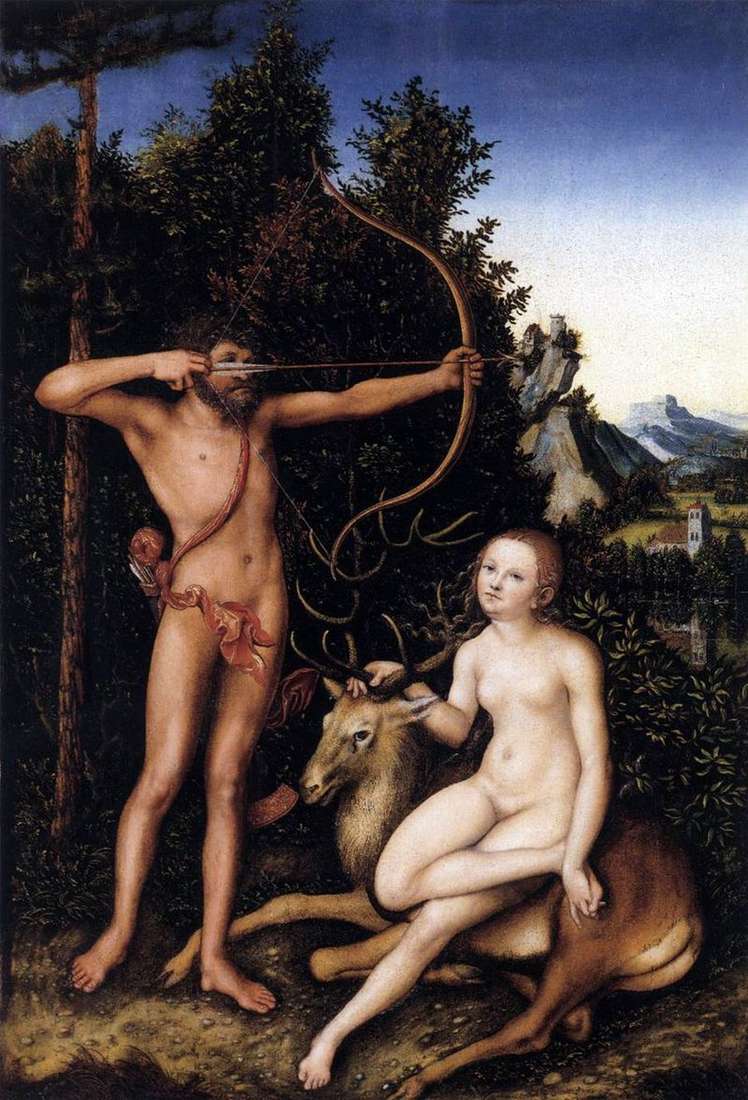
“Apollo and Diana” – a picture on mythological themes. Apollo, in Greek mythology the son of Zeus and the Titanides of Latona, twin brother of the virgin goddess of hunting Diana. He was considered a deity, a prophet, a luminous patron of the arts.
Diana, the beautiful sister of Apollo, was the goddess of the moon and the hunt. In works of art she is usually portrayed as a beautiful girl dressed in short dresses of a hunter, with a bow in her hand and a quiver full of arrows, on her side and with a crescent on her proudly planted head. Often, a deer is depicted next to the goddess.
The plot of this picture served as an ancient Greek myth. Niobe – the wife of King Thebes had seven sons and seven daughters. She was filled with pride and went so far as to forbid her people to worship Apollo and Diana and even ordered her whole kingdom to throw their statues off the pedestals and smash them. She also offended their mother, the goddess Latona, and did not want to sacrifice her.
Then the angry Apollo and Diana set out on their journey. Apollo, seeing that the seven sons of Niobe hunted in the forest, killed them with their arrows, which never flew past the target.
King Thebes Amphion did not bear the loss of his sons and pierced his chest with a sharp sword. Crying over their corpses, Noble and exclaims: “Rejoice, cruel Latona! I have still more children with the unfortunate than you happy.”
Only Niobe was shut up, as the bell of Diana’s bow was heard ringing, arrows flew and all daughters fell… Niobe stood, surrounded by the bodies of sons, daughters and husband. She was numb with grief. The wind of her hair does not sway, her eyes do not shine with the life, only tears flow from them.
Petrified Niobe and stormy whirlwind moved her to her homeland in Lydia. There, high on the mountain Sipile is Nyoba, facing the stone, and always shed tears. Such a sad legend.
The picture “Apollo and Diana” shows the moment when Apollo shoots arrows. The faces of the gods are completely impassive, they brutally avenged the mortal woman.
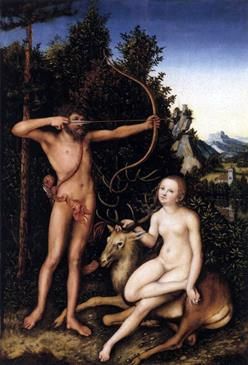 Apollo et Diana – Lucas Cranach
Apollo et Diana – Lucas Cranach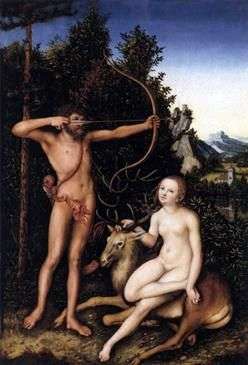 Apolo y Diana – Lucas Cranach
Apolo y Diana – Lucas Cranach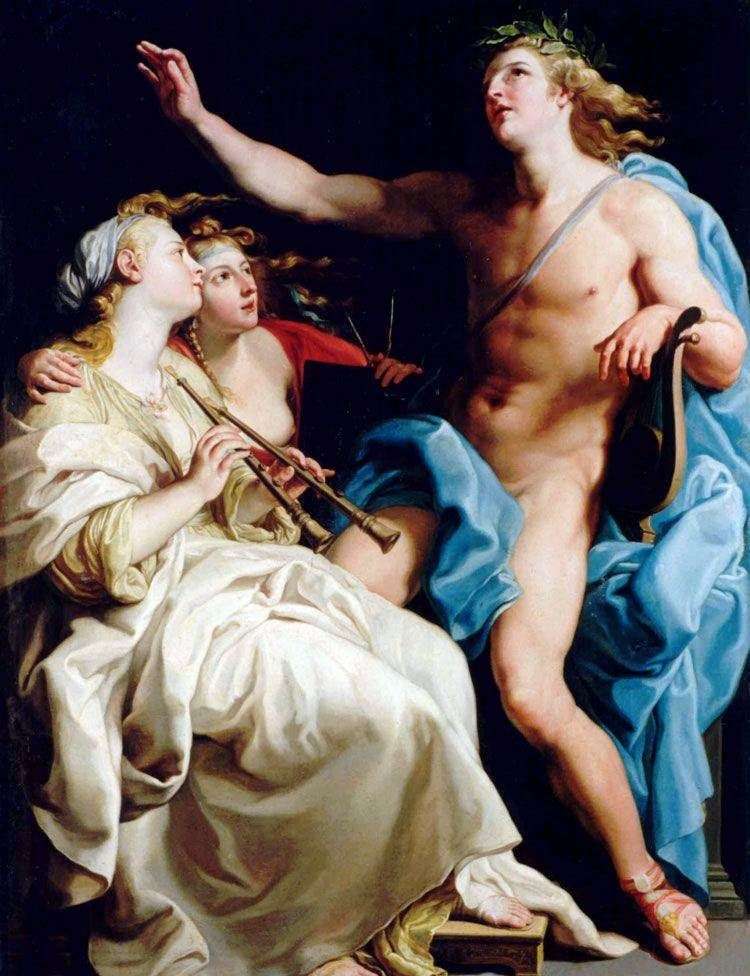 Apollo and two muse by Pompeo Batoni
Apollo and two muse by Pompeo Batoni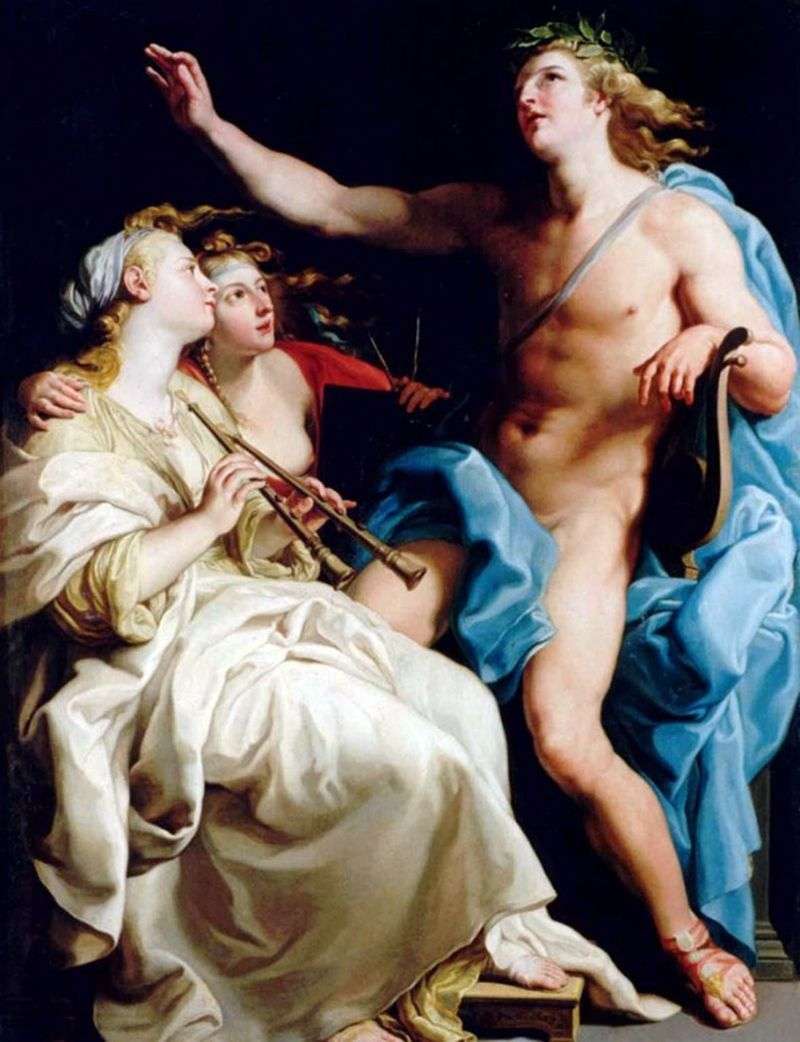 Apollo and the Two Muses by Batoni Pompeo
Apollo and the Two Muses by Batoni Pompeo Diana after the hunt by Francois Boucher
Diana after the hunt by Francois Boucher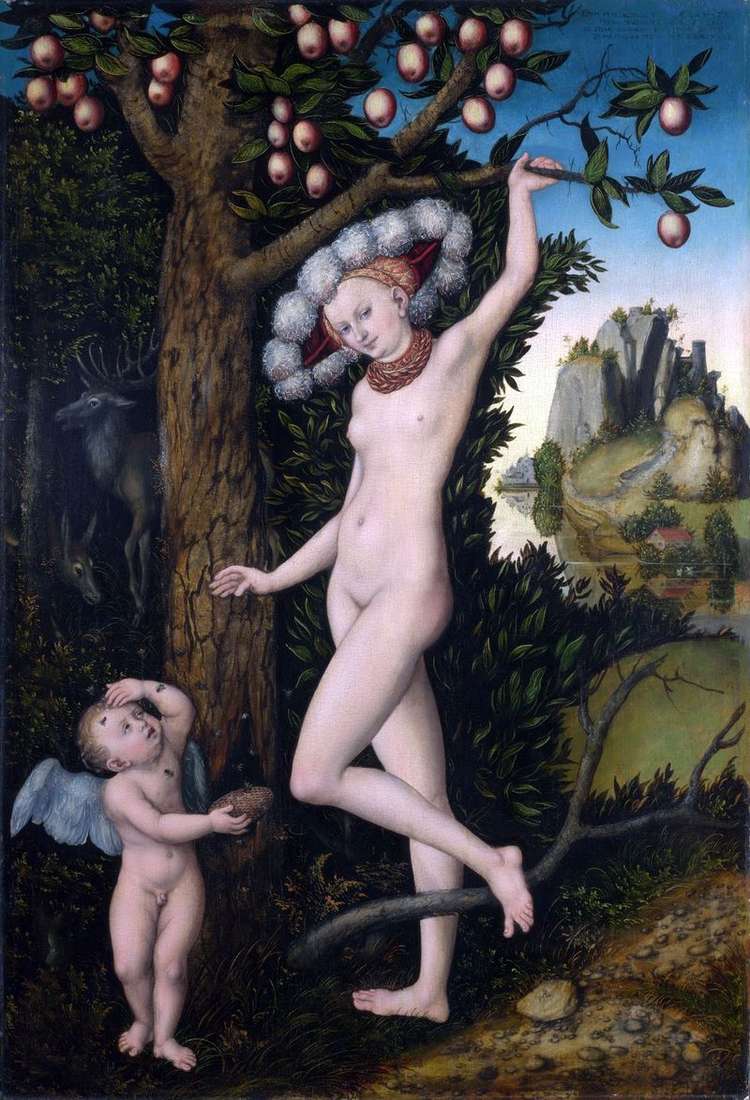 Offended Cupid and Venus by Lucas Cranach
Offended Cupid and Venus by Lucas Cranach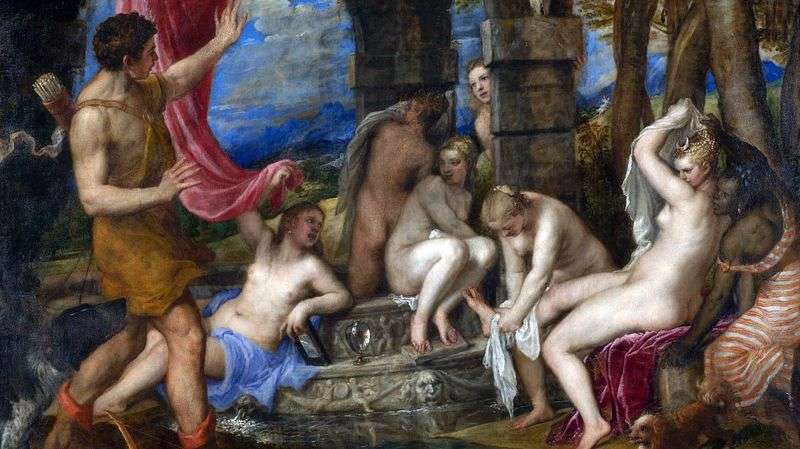 Diane and Actaeon by Bartholomeus Spranger
Diane and Actaeon by Bartholomeus Spranger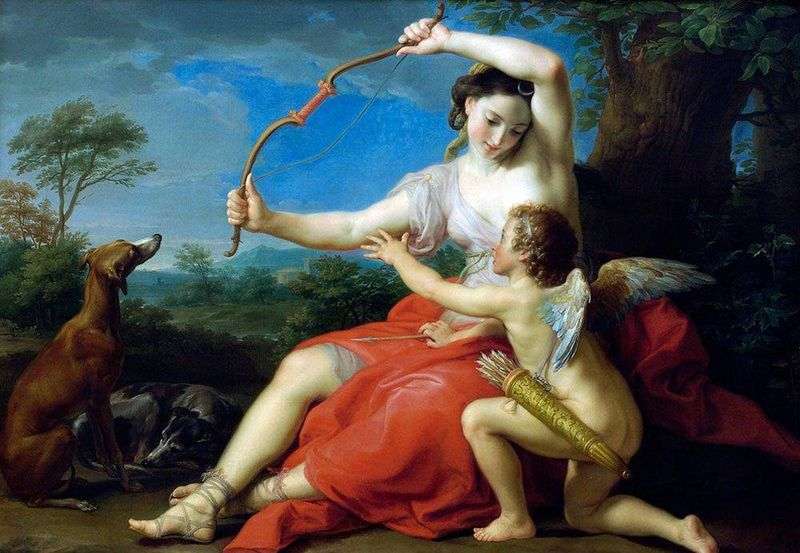 Diana and Cupid by Pompeo Batoni
Diana and Cupid by Pompeo Batoni